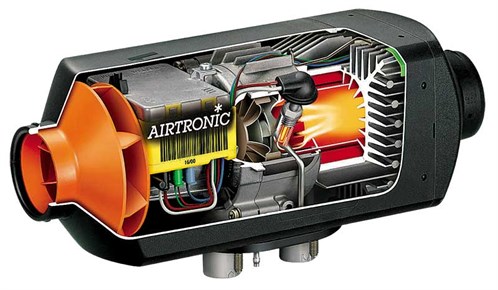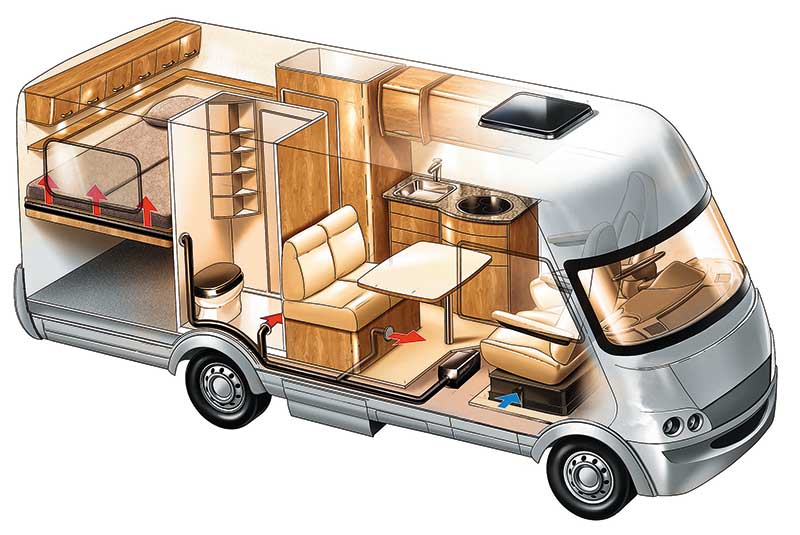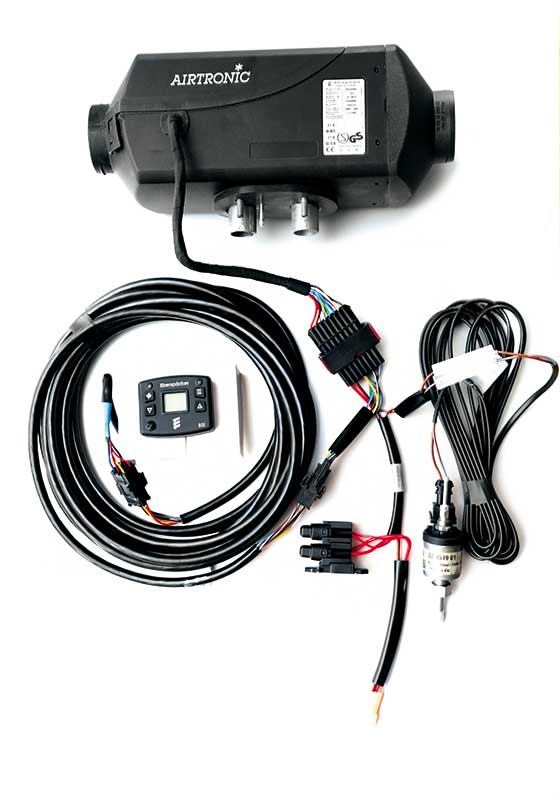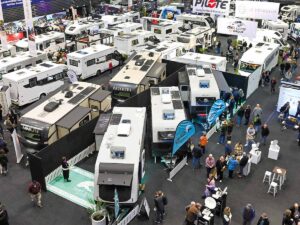If an RV in New Zealand doesn’t have a good heating system, it’s likely to sit unused for four months or more each year. Fitting a heater increases the vacation opportunities in an RV from eight months to a year.
What size heater is needed?
For most parts of New Zealand, for a well-insulated RV up to seven metres long with double-glazed windows, fitted with blinds or drapes and insulated cab window covers, a 2.2kW heater should suffice.
A four-kilowatt heater will be needed in larger motorhomes or for older vehicles with less effective insulation. It’s also a better option for a well-insulated RV that’s more than six metres long if you plan wintering over in the RV south of Christchurch.
What type of heater?
If a 230-volt mains power is available, say at a motor camp, electric heaters are a cost-effective option. Suitable fan heaters can be bought for less than $100 and $150–$200 will buy a more sophisticated 2000-watt ceramic tower model. Because power is included in the campsite charge, they are cheap to run.
Off-grid camping requires a different heating solution. LPG gas-powered heaters are practical and come in a variety of styles: freestanding heaters, wall-mounted heaters, and hot air heaters. The LPG system is usually onboard the RV, so heater connection is straightforward.
Freestanding heaters are not legal for use in RVs in New Zealand. Known as catalytic heaters, they draw combustion air from inside the RV and vent exhaust gases back inside the RV, creating potentially fatal hazards such as oxygen depletion and carbon monoxide contamination, as well as creating excessive moisture.
Heat exchangers
Heat exchangers use outside air to burn fuel to heat a heat exchange plate. The product of combustion (the burnt air) is exhausted safely outside the RV.
To heat the RV, the heater fan blows air from the cabin across the heat exchange plate, then blows it around the cabin and, if fitted, through ducting to other parts of the RV. You’ll find heat exchangers in both wall-mounted and hot air heaters.
Wall-mounted heaters occupy valuable cupboard and drawer space. Hot air heaters are less obtrusive. They can go under a bed, behind a cupboard, or under the floor.
Hot air heaters also come diesel-powered using the same heat exchanger principle. Before deciding which is best for your situation—LPG or diesel—consider these points: fuel costs, effectiveness, 12-volt power needs, cost in-the-box, and cost installed.
Diesel heaters vs LPG heaters

Comparing a 2.2kW diesel with a 2kW LPG-powered heater at today’s fuel prices, the diesel heater at 0.29 cents an hour costs less to run than the LPG one at 0.55 cents an hour.
Currently, LPG in a 9kg bottle (9000 gram) cost $35 or 0.39 cents/gram. A 2kW LPG heater averaging 140 gram/hr costs 0.55 cents an hour to run.
Diesel pump prices vary, but at $1.2/litre or 0.12 cents/ml, a 2.2kW diesel heater averaging 0.24 litres (240 ml) an hour costs 0.29 cents an hour to run.
Unlike LPG, diesel is not volatile at ambient temperatures. This makes diesel systems less hazardous but creates complications when building a compact heater. An LPG heater works satisfactorily with an on/off LPG powered heat source and a two- or three-speed output fan.
To work efficiently, a diesel heater needs a more sophisticated (expensive) system;
a variable fuel flow for the heat source and a variable speed output fan. These features benefit the user because the heater is quieter and produces a more even room temperature.
Keep in mind that both LPG and diesel air heaters need a robust 12-volt supply system to keep the heater fan working.
In particular, a diesel heater needs 8–10 amps for 30 seconds to start, so low battery voltage can cause a hard/slow start signalled by a smoky exhaust during the start process.
If the fan stops, the heater stops. A depleted house battery is a common cause of heater stoppage.
The cost in-the-box is not the end cost of fitting a heater. It has to be installed. An LPG heater must be installed and signed off by a qualified LPG technician.
This requirement has turned a number of buyers towards the diesel product. A diesel heater can be a DIY project and to this end, manufacturers are supplying diesel heaters with all the parts and instructions needed to fit the heater and hook it up to the vehicle’s diesel tank and power supply.
Either way, it is the installed cost of the heaters and not the box price that should be compared. You can take this sort of analytical route to help decide what heater to buy or just canvass the opinion of your fellow travellers the next time you attend happy hour on the road.
Checking out what they bought, and why, could lead you to the perfect heater. Whatever you decide, the sooner you fit your new heater, the sooner you can enjoy your winter RV excursions








